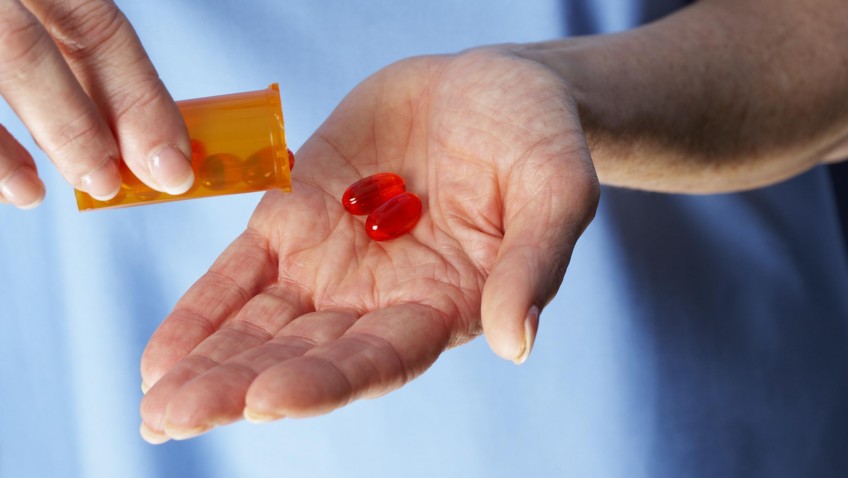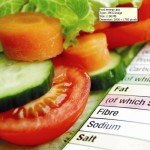As you age, loss of taste, lack of appetite, chewing and swallowing problems and decreased physical activity are all common triggers that can reduce your normal, healthy intake of necessary nutrients
Many of us choose to take supplements, because we think we’re not getting the right amount of vitamins in our body – but you might not realise that taking a high dosage, or taking them for too long, can do more harm than good, especially if you’re already taking prescription medication.
Not only can vitamin supplements be expensive they may be unnecessary. Your kidneys will simply flush out what your body doesn’t need, which could mean that your expensive supplements end up going straight down the toilet.
Vitamin D
Vitamin D is an important nutrient to consume as you age because it supports bone health, reduces cardiovascular disease risk and prevents certain types of cancer.
Our body makes most of our vitamin D in reaction to sunlight on our skin. It’s also found in a small number of foods including oily fish, eggs, margarine, yoghurt and fortified breakfast cereals. However, people over the age of 65 are at risk of not getting enough vitamin D, especially when we’re not exposed to much sun.
Try to get out in the sun for 10-15 minutes a day without sunscreen, too.
You can buy vitamin D supplements at most pharmacies and supermarkets, but be sure not to take more than 25 micrograms per day, as it could be harmful.
Iron
Iron is an essential mineral that has several important roles in the body, including helping to make red blood cells which carry oxygen around the body.
You should be able to get all the iron you need from your daily diet, as it is found in red meat, pulses and beans, eggs, wholegrain products, nuts and seeds, green leafy vegetables, dried fruit and fortified cereals.
Older patients should not routinely supplement with iron unless they have a known reason for any iron deficiency, for instance if they have just had an operation, or suffered blood loss, or are vegan.
Also, iron deficiency in patients over 50 can be the first sign of an underlying health problem, so would we always want to investigate this fully.
Fortunately, there are a couple of simple ways to improve iron absorption without taking a supplement. Don’t drink tea and coffee with a meal as this will reduce the amount of iron absorbed so these drinks to in-between meals.
To boost iron absorption, have plenty of vitamin C in your diet and try having a glass, or fruit juice with an iron-rich meal.
Calcium
Calcium is an important mineral as it helps to build strong bones and teeth, regulates muscle contractions, including heartbeat, and helps blood to clot normally. Milk, cheese and yoghurt are all good sources of calcium, as well as green leafy vegetables, nuts and fish like sardines, where you eat the bones.
Try to eat 3-4 portions of dairy products a day as this should provide all the calcium you need.
If you’re concerned that you’re not getting enough, it’s best to consult your GP before taking a supplement as high doses of calcium can cause stomach pain and diarrhoea.
B vitamins
There are several types of vitamin B and they all have different functions within the body, including helping to break down energy from food, keeping the skin, eyes and nervous system healthy, and helping to form red blood cells.
Provided that you eat a well-balanced diet, including wholegrains and cereals, you should be getting all that you need. However, as we get older it becomes harder to absorb vitamin B12, which is found in meat, cod, salmon, milk, cheese, eggs and some fortified cereals.
People who are deficient are at increased risk of anaemia and neurological problems such as memory loss.
There’s some evidence that older people can have B12 deficiency. Eating fortified breakfast cereals, yeast extract and meat can help with this.
Vitamin C
High-dose vitamin C supplements have become a popular way to ward off colds, but are they really worth the money? While it’s true that vitamin C is an antioxidant that helps to fight disease and infections and aids healing, eating plenty of fruit and vegetables should help you to get all that you need.
Aim for five or more portions of fruit and vegetables a day, with only one of these being fruit juice. Citrus fruit, strawberries and mango, as well as peppers and tomatoes are all good sources of vitamin C.
Vitamin A
While vitamin A deficiency is uncommon, this nutrient is important for you as you get older, helping you maintain your vision and normal function of your body’s organs. Choose a variety of foods to meet this need such as salmon, spinach or other leafy greens, orange peppers, mango, dairy foods and fortified cereals. Supplements available can contain a combination or the individual forms of vitamin A, but always check with your doctor before adding a vitamin A supplement to your diet.
Pharmacy and health food shops will always give you advice but don’t forget that usually a good healthy diet should be provide enough nutrients for most of us. And if you have any particular health problems always consult your GP.





